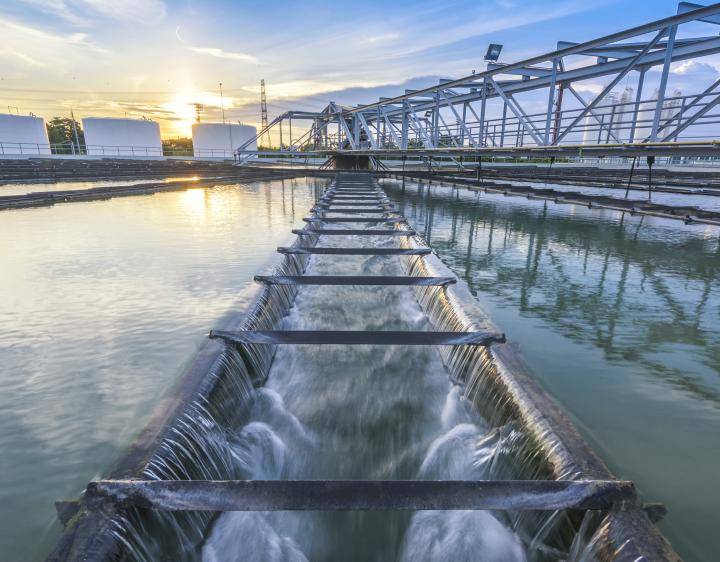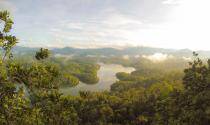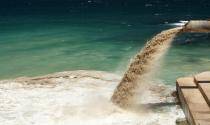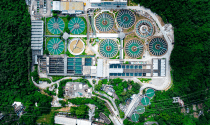
For 4 billion people globally, water is becoming harder to access every year. From Indonesia to the UK, in busy cities and quiet farming communities, water stress is no longer a distant issue. The World Economic Forum lists water crises as the largest global risk in terms of potential impact1. Nearly two-thirds of the world’s population faces severe water scarcity for at least one month annually2. By 2030 global water demand is expected to outpace supply by 40%3. But this crisis is about so much more than just water quantity. It’s about water quality, water accessibility, and the resilience of the systems we depend on.
Building water resilience goes beyond just using less. We need to redesign how we manage and protect water, ensuring it's safe, sustainable, and equitably shared, even as climate change, growing populations, and industrial demands increase the challenge.
The shift to water resilience is a systems shift. It needs to be big and transformational, but it is also deeply local. Each community and river basin plays a part in the solution.
A global vision, driven by business
Leading the charge is the UN Global Compact and its CEO Water Mandate, an initiative seeking to align the public and private sectors to address water challenges together. One of the Mandate’s key initiatives is the Water Resilience Coalition (WRC), a partnership of global businesses working to secure freshwater in water basins across the globe.
During London Climate Week 2025, Foresight Group, the WRC, CEO Water Mandate, and the UN Global Compact UK hosted a session titled "Collective Actions for Water Resilience." Held at our offices at The Shard, the event brought together leaders from companies such as Ecolab, Heineken, Kering, Coca-Cola EuroPacific Partners, and Haleon to share real-world examples of water stewardship around the world.
Their shared goal? Net positive water impact in 100 of the world’s most water-stressed basins. This includes a new focus on Europe, with emerging collaborations in France, Spain, Italy, and the UK.
Ecolab: Standard setters
Ecolab, held in the WHEB funds and a founding member of the WRC, is setting the standard. As ‘Basin Champion’ for California, Ecolab is playing a key role in one of the world’s most water-stressed and economically important regions4. California, home to 39m people and a major agricultural hub, is expected to lose 10% of its water supply by 20405. In response to this, Ecolab and other members of the California WRI have committed to reduce, reuse and restore 1 million acre-feet per year by 2030, equivalent to 320bn gallons of water6. With 124 projects currently in progress, the wheels are in motion to meet this ambitious target.
Building on the experience in California, Ecolab is expanding the ambition further to two more regions increasingly affected by drought and water stress, Southern France and Southern Spain. At the London session, breakout discussions invited participants to pinpoint shared goals, surface barriers, and explore practical ways to collaborate in key water-stressed regions. In the France and Spain group, attendees raised a common frustration: the fragmentation caused by too many overlapping initiatives. There was a clear call for greater alignment between existing efforts and more collaboration across the multiple water stewardship platforms companies already engage with. There was also discussion around innovative finance ideas, such as creating water-based credits inspired by the UK's Biodiversity Net Gain system.
Beyond philanthropic efforts, Ecolab is helping customers preserve water through its end-to-end water conservation solutions. In 2024 alone, its technologies enabled customers to save 226bn gallons of water, equivalent to the drinking water for 781m people for one year7. For example, in partnership with Kraft Heinz, Ecolab’s 3D Trasar products monitored and optimised water use in real time using predictive analysis. The result was 51m gallons of water saved, 1.3bn BTUs8 of energy reduced, and 170 metric tons of CO₂ equivalent avoided9 in 2021.
Croda: Investing in smart solutions
Croda, another WRC member and WHEB portfolio company, also participated in the France and Spain breakout session. Croda’s strategy is rooted in two approaches:
- WASH initiatives: Through their foundation, Croda supports water, sanitation and hygiene (WASH) projects, focused in the water stressed regions where there are larger Croda employee communities and where business operations are.
- Customer-focused solutions: Croda is also developing products that help customers use less water. One real world example of Croda’s water-saving products is Coltide Radiance, a fabric care ingredient. The biopolymer is added to fabric conditioners, helping to extend the life of clothing. In 2020, this saved 13.45m m³ of water and helped to avoid 44,200 tonnes of CO₂10 through the reduction of clothes waste.
Investing for water security
We are optimistic about the growth of companies focusing on supporting customers with water preservation and access. We have been slowly building our exposure to the Water Management theme over the past year, with additions such as Kurita Water and American Water Works joining Ecolab, Xylem and Veralto. As well as being exposed to the critical water sector, these companies have attractive investment characteristics such as: stable and high recurring revenues; high barriers to entry; and high resilience during downturns due to the essential nature of the products and services being sold.
The London session was a reminder that water resilience is not a solo pursuit, it is a collaboration. Together, these businesses are proving that when companies come together across industries and lead with purpose, everyone benefits.
Water resilience is about building a world where clean, accessible water supports communities and economies. The tools and expertise exist. Now it’s time to turn collective intention into lasting impact.
Sign up here to receive our monthly and quarterly commentaries in your inbox.
1https://pmc.ncbi.nlm.nih.gov/articles/PMC4758739/#:~:text=We%20find%20that%20two%2Dthirds,water%20scarcity%20all%20year%20round.
2 ibid
3 https://commission.europa.eu/topics/environment/water-resilience-strategy_en
4 https://wateractionhub.org/basin-collaborative/california-water/
5 https://resources.ca.gov/-/media/CNRA-Website/Files/Initiatives/Water-Resilience/CA-Water-Supply-Strategy.pdf
6 https://wateractionhub.org/basin-collaborative/california-water/
7 https://en-uk.ecolab.com/expertise-and-innovation/water
8 BTU stands for British Thermal Unit. It's a unit of energy, specifically measuring the amount of heat required to raise the temperature of one pound of water by one degree Fahrenheit.
9 https://tnfd.global/wp-content/uploads/2024/12/Ecolab_1026_FINAL.pdf
10 https://www.croda.com/en-gb/about-us/case-studies/coltide-radiance-sustainability-in-use?




